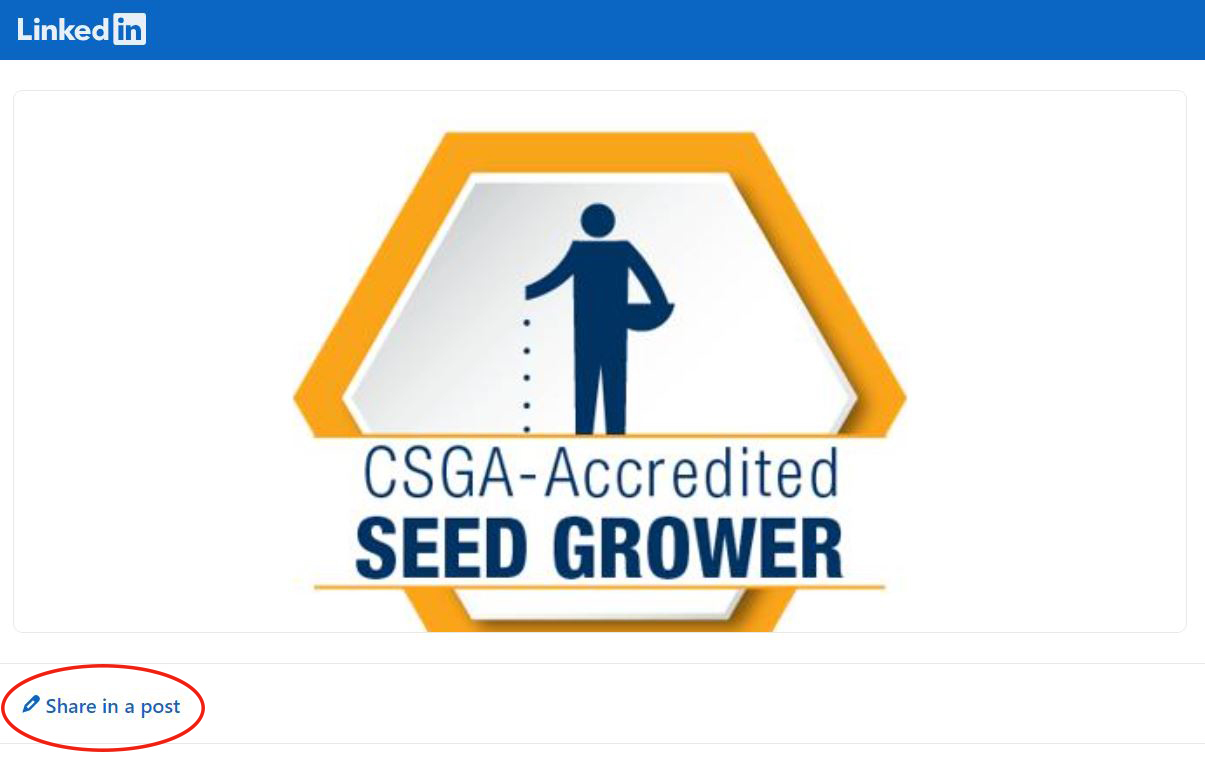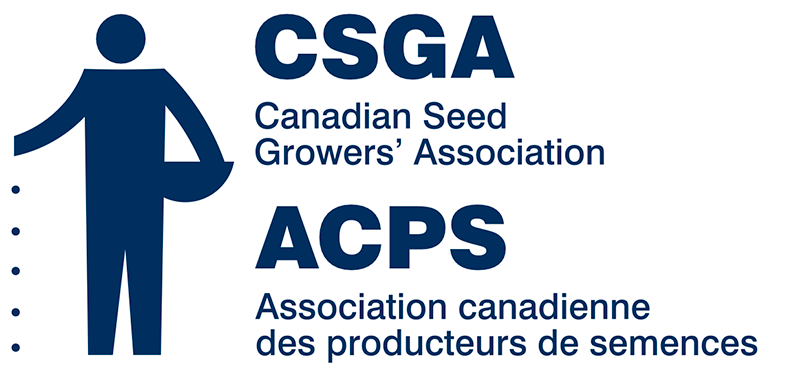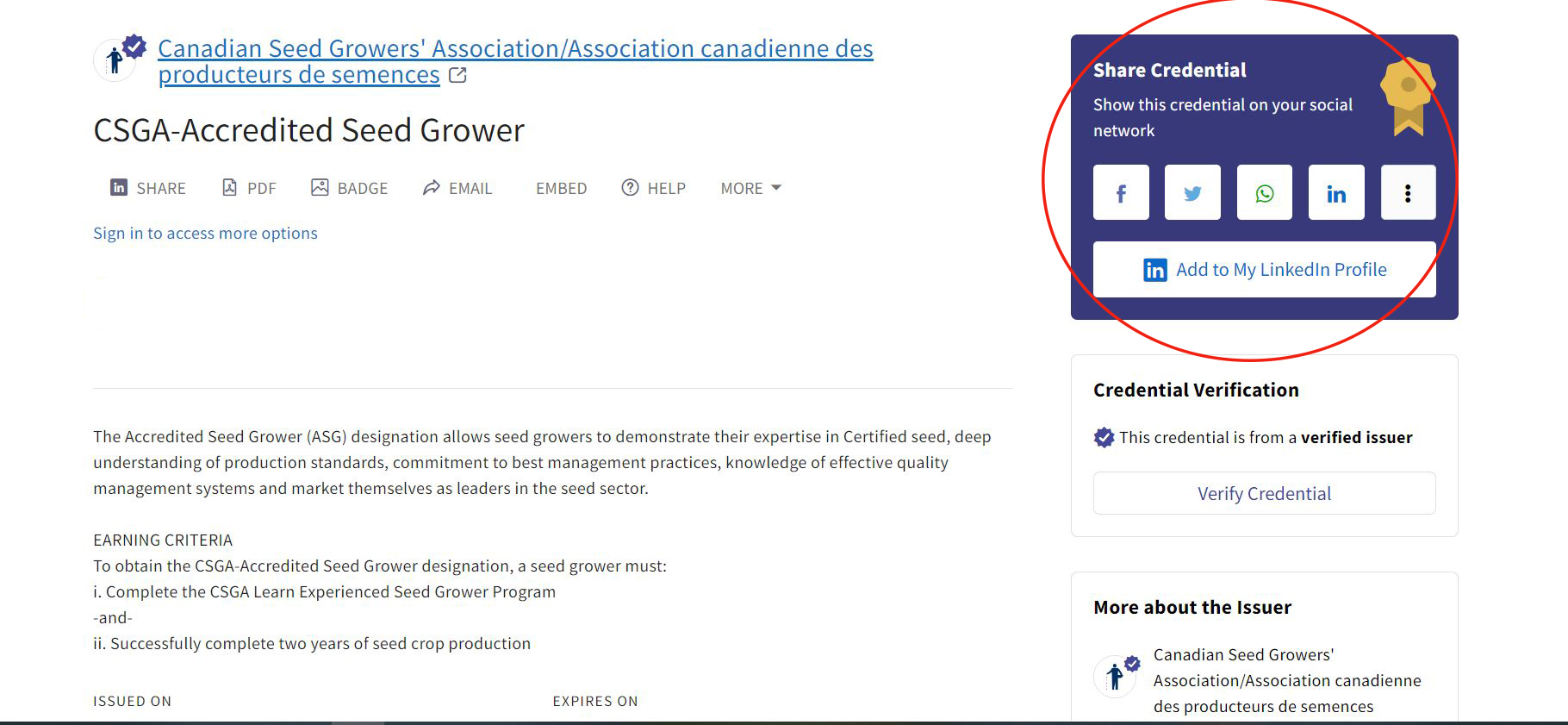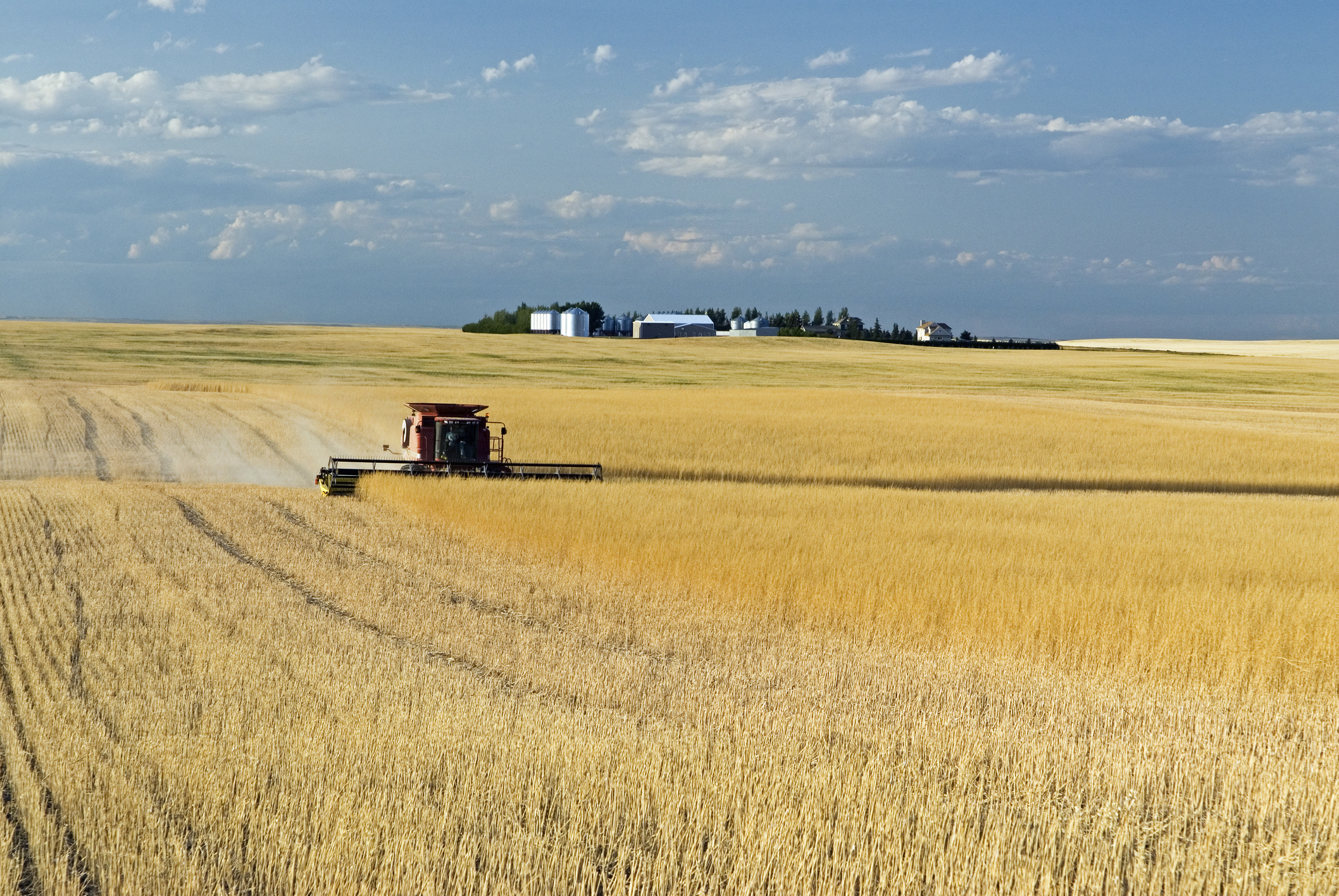Sept 21, 2023
Consultation on Proposed Changes to Circular 6
CSGA regularly reviews the Canadian Regulations and Procedures for Pedigreed Seed Crop Production (Circular 6), which sets out the requirements a seed grower and a seed crop must meet for seed crop certification.
These reviews and revisions enable a trusted, high-performing seed system that operates at its highest possible level, allows requirements to be adapted to reflect changes in technology and production practices, and develops and administers certification requirements for new or emerging crop types. CSGA is committed to providing an agile and comprehensive system with certification requirements that meet the rapidly evolving needs of the seed sector and the broader agriculture community.
Focus of The Consultation
CSGA is seeking feedback on the proposed revisions to the certification requirements in Circular 6, Section 6 Forage and Turf Grasses and Section 7 Forage Legumes regarding mechanical purity.
The proposed revisions refer to:
- maintaining appropriate isolation and maximum impurity standards for other crop kinds that can cross-pollinate with the inspected crop or where the seeds of the other kind are difficult to distinguish from seeds of the inspected crop kind in a lab test; and
- no longer requiring isolation from or having a maximum impurity standard for those kinds with seeds that may be difficult to separate from seeds of the inspected crop, but the seeds are not considered difficult to distinguish from one another in a lab test, and the two crop kinds do not readily cross-pollinate.
Additional detailed information here on the proposed changes.
How to Participate
Your input on proposed Circular 6 changes helps maintain an agile and up-to-date seed crop certification system. You are invited to provide feedback on the proposed changes via email to Gail Harris and Mike Scheffel or by calling 613-236-0497, ext. 227.
The consultation is now open to all stakeholders for feedback on these proposed revisions. The consultation will close on Wednesday, November 15, 2023, at 5 p.m. ET. Your input is greatly appreciated!
Back to topDo you have a Biosecurity Plan?
With reports of increasing incidences of harmful weeds, it’s a good time to consider biosecurity plans. A biosecurity plan provides a framework to manage or control the spread of harmful biological contaminants such as disease, insects, and weeds. Every grower should consider whether there are any contaminants that could significantly impact their business and how the exposure or effect can be mitigated or managed.
The Canadian Food and Inspection Agency (CFIA) maintains a webpage of invasive species, plants, and diseases of concern, which describes those federally monitored pests for which there may be follow-up requirements for management, reporting, removal, and, potentially, isolation. Additionally, each province maintains their own lists describing varying requirements should contaminants of concern be found. It’s not easy to get contaminants listed here, so these are things that you genuinely do not want on your farm!
How to Develop a Biosecurity Plan
If you don’t have a plan already, the CFIA has published a Farm-Level Biosecurity Planning Guide, which can be used to develop or refine your own strategy.
Biosecurity During Crop Inspection
During the seed crop certification process, inspectors are only required to report those weeds described as Prohibited Noxious in the federal Weed Seeds Order 2016. If other weeds or diseases pose a risk to your production, ask your inspector if they have been trained to identify those contaminants. If they are, they may be able to provide you with additional information regarding its presence in the fields they inspect, depending on the terms of your contract with them.
If you have a biosecurity plan, let your inspector know ahead of time. Ensure the inspector knows if they should wear special gear (i.e., a suit or booties) or if there is something present in your fields that shouldn’t be spread. A well-implemented and -communicated biosecurity plan will help your inspector protect your and your neighbour’s production.
Back to topDisplay Your CSGA Designation Digital Badges!
To help you market your seed production knowledge and experience, CSGA is proud to issue digital badges to those with CSGA designations, including current Accredited Plot Growers, Recognized Plant Breeders, Recognized Associate Plant Breeders, and new Accredited Seed Growers.
A digital badge is a verifiable online credential demonstrating your accomplishment or skill.
How To Display Your CSGA Digital Badge
You can display your badges on any social media channel, email signature, or website to distinguish yourself as one of the best in your field and help promote excellence within the Canadian seed sector.
1. Use the Unique URL
Once you’ve received your CSGA digital badge email, click the badge image to view your credential on the Credential View page. At the top of the address bar is your unique credential URL.
Your unique URL is the most valuable way you have of sharing your credentials. You can add it to:
- Social media profiles
- Websites and blogs
- Digital resumes
- Email signatures & more!
You can direct stakeholders, potential employers, and customers to your Credential View. They can verify its validity and see more information about your achievement there.
2. Share Directly to Social Media
Use the widgets for all the major social media channels on your credential view, including Facebook, Twitter, and LinkedIn. Just click on a button to post to that particular platform!
NOTE: There are two ways to share on LinkedIn
To display your CSGA digital badge directly on your LinkedIn post, click the “in” Social Media widget on your credential page.
 |
 |
To display the generic LinkedIn celebration image announcing a credential, click the “Add to My LinkedIn Profile” button and follow the prompts to add the credential celebration image to your profile. Note that your CSGA digital badge will not appear.
 |
 |
If you have any questions or concerns, please get in touch with us by email or phone at 613.236.0497 ext. 229. We are always happy to help.
Back to topHarvest Continues Across Canada! Check Your Certification Status
Ensure your fields have been inspected before starting the combine – check your crop certification status in SeedCert before you harvest.
An uninspected harvested crop is an uncertified seed crop, so harvest should only occur after CSGA has determined that the production requirements have been met. Only CSGA will provide the final certification decision.
Once the field is inspected, in SeedCert, you can use the “Crop History” tab to verify the status of your crop. If the field meets all certification requirements, you will receive an email notification that a new certificate is available. You can then go to the “Crop Certificate” tab to sign and finalize your certificate. Check out our How-To video for instructions on accessing, signing, and sharing your digital crop certificates.
If you have any questions or concerns, please get in touch with us by email or phone at 613.236.0497 ext. 8803. We’re here to help.
Back to topWant to Know More About Producing Certified Seed? CSGA Learn is for You!
If you are a new seed grower or a seed professional just starting out in a seed business, our CSGA Learn Introduction to Seed Production Program supports your success and first years in seed production.
The intro program focuses on learning the procedures, standards, and best management practices to help you succeed in your production of certified seed. CSGA Learn is seed learning for you, on your terms, wherever and whenever.
- Course 1: Introduction to the Canadian Seed Sector
- Course 2: Seed Certification Classes
- Course 3: Producing Foundation, Registered and Certified Seed Crops
- Course 4: Seed Crop Certification Process and Traceability
- Course 7: Harvest, Handling and Storage
CSGA Learn looks to the next generation of innovative farmers to carry on Canada’s international reputation for premium quality seed production. Enroll today!
Back to topCalling all Crop Certificate Assignees and Growers!
Have you provided your consent to share variety information in Seed Guides? Seed growers or crop certificate assignees must explicitly consent to CSGA to be included in the National Pedigreed Seed Locator and the provincial seed guides. Your seed will not be included in the pedigreed seed crop directories without express consent and identification of the personal information you wish to be released. Check out last month’s article for instructions on how to provide consent and review your preferences.
Back to topThe University of Guelph Offers New Master of Plant Agriculture Degree
The University of Guelph is now offering a Master of Plant Agriculture Degree, differing from the already-available master’s degrees in that no academic research or traditional thesis is required. The degree is designed for employers in the private and public sectors who are looking for professionals with advanced expertise in plant breeding, crop production and plant science. Learn more.
Back to topContact Us
CSGA staff are here to help you. Don’t hesitate to contact us. Remember the CSGA national office operates in the Eastern Time (ET) zone.
Telephone: (613) 236-0497
Email: communications@seedgrowers.ca
Address: 21 Florence St, Ottawa, Ontario K2P 0W6
Click here for complete staff contact information.












